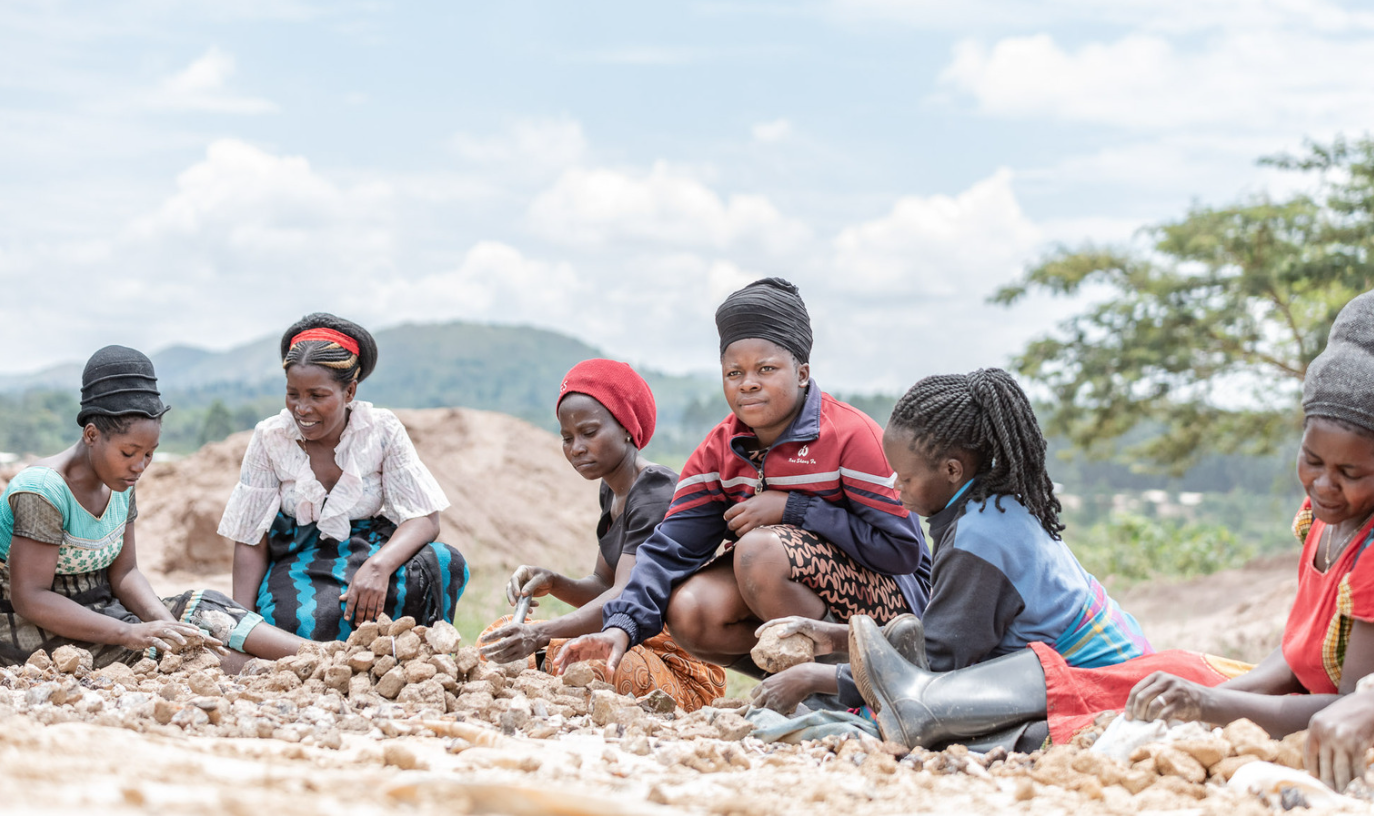Artisanal mining is a crucial source of revenue for women and their families.
30 percent of the estimated 44 million people working globally in artisanal mining are estimated to be women. They are an essential part of the sector, taking on roles from panning and processing, to trading goods and services. They rely on the income to support their households and dependents.
But women face many challenges. IMPACT’s research has found that women are most likely to work in the lowest-paying jobs in the ASM sector or are often paid less than their male counterparts for the same work.
Women are also less likely to organize into teams, which results in greater difficulty in accessing credit with favorable terms. This makes them vulnerable to predatory lending. It also leaves them behind in any formalization or legalization efforts in the sector.
The Digging for Equality Project
Between 2019 and 2022, IMPACT’s Digging for Equality project made significant strives to support gender equality and women’s empowerment in the artisanal mining sectors across three countries—Democratic Republic of Congo, Uganda, and Zimbabwe.
The project supported women working in the ASM sector to reduce the barriers that they face and support their efforts towards gender equality.
The project worked directly with five women’s mining organizations across the three countries to build their capacity and to improve economic benefits for their members and women in the sector. While contexts in each country were unique, all saw women miners gaining confidence in their skills, increasing leadership, and working together towards more formal teams—and their overall economic empowerment.
Democratic Republic of Congo
In DRC, IMPACT worked with Réseau d’Innovation Organisationnelle (RIO) to support Association de Lutte contre l’Exploitation des Femmes et Enfants des Mines (ALEFEM). ALEFEM, an association with 750 members which works exclusively with women and children in ASM gold communities in Kamituga.
According to DRC’s Mining Code in DRC, only miners registered as part of a registered cooperative may engage in mining activities. After workshops and strategy sessions identifying this as a need for its members, ALEFEM established TUUNGWANE.
TUUNGWANE is the first women’s mining cooperative in Kamituga. The cooperative is a major step forward for brining women in the area out of informality. RIO and IMPACT continue to support the cooperative’s registration, an arduous and time consuming process.
Zimbabwe
In Zimbabwe, IMPACT worked with the Zimbabwe Environmental Law Association (ZELA) to support two local mining associations: Mberengwa Miners Associations (MBEMA) and Zvishavane Women’s Mining Association (ZWMA). MBEMA was formed in 2015 and has more than 500 members—150 women, 300 men, and 100 youths. ZWMA is an exclusively female mining association with more than 200 members.
The two groups in Zimbabwe were strengthened as their memberships grew over the course of the project due to capacity building and skills training. Both developed and adopted new constitutions, improving their formalizing and bringing them in-line with Zimbabwe’s laws.
With the changes, the associations have become more efficient, coordinated, and can better advocate for their own interests. As a result of this increased formalization the ZWMA has also managed to open a bank account for the management of association funds.
Uganda
In Uganda, the project supported the Mubende Women Gold Miners Association (MUWOGOMA) and Mubende United Miners Assembly (MUMA). MUWOGOMA was founded in 2014 by 30 women artisanal miners and has grown to 410 members. MUMA is MUWOGOMA’s umbrella organization. Only mining associations can become members of MUMA, not individual miners. It currently has 21 associations registered, representing more than 20,000 artisanal miners.
Both MUWOGOMA and MUMA improved their operations, including within the framework of Uganda’s new mining law, adopted in 2022. The new law would require artisanal miners to be organized in cooperatives in order to obtain licenses.
As a result, a group of 30 women in Kassanda also decided to create their own cooperative, Bukuya Kassanda Women Miners Cooperative Society Ltd (BUWOMICO LTD). The cooperative has been registered and began the process of obtaining a mining license.
Increased Incomes for Women Miners
Importantly, across all three countries, the technical assistance women miners received increased their income over the three years by more than 60 percent. It also decreased the gender income gap at the mine sites where the project was implemented.
The Digging for Equality project has seen women artisanal miners improve their skills and incomes in the artisanal mining sectors. As women’s mining associations strengthen and multiply, gender equality and women’s empowerment in artisanal mining grows.
Click here for more information about the Digging for Equality project.
The Digging for Equality project was undertaken with the financial support of the Government of Canada provided through Global Affairs Canada.
Photo by Ibrahim Biko/IMPACT: Women artisanal miners in Uganda from the Bukuya Kassanda Women Miners Cooperative Society Ltd (BUWOMICO LTD).

